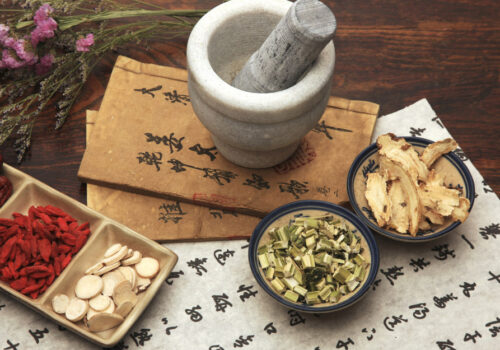What Are Herbal Formulas Made Of?
Chinese herbal formulas are typically composed of 8-12 substances, ranging from plants and minerals to animal parts and insects. Federal law prohibits the inclusion of endangered species or pharmaceutical drugs in any formula. These herbal formulas are specifically created in a balanced manner with each herb or substance providing either a direct therapeutic action or a balancing effect. This technique creates a product that produces fewer side effects when compared to pharmaceutical drugs. By contrast, pharmaceutical drugs are highly refined down to a specific chemical that produces the desired result of the medication. Unfortunately, this also leads to that long list of the potential side effects.
Quality Control
Quality Control is essential for Chinese Herbal Medicine (CHM). A third generation practitioner of CHM, Huisheng Xie, DVM, Ph.D, established Dr. Xie’s Jing-tang Herbal, the first United States-based Chinese Veterinary herbal pharmacy, in 1999. The herbal quality control is always Dr. Xie’s top priority as it is important for clinical efficacy and also animal safety. TLC (thin layer chromatography) and HPLC (high performance liquid chromatography), are used to insure potency and test for active constituents. Every batch of herbs is tested before, during and after processing. All these raw material and herbal products comply with the new stringent Good Manufacturing Practices (GMP). GMP certification means that the site and methods employed in the production of the herbs has been subject to a thorough quality control investigation and is certified to be in compliance. Tests for moisture content, dissolution, heavy metals (lead, arsenic, mercury, cadmium) and microbial content are performed on every batch of finished product. When the products arrive in the U.S. they are subject to an additional review by the FDA, ensuring that the products meet every safety standard.

